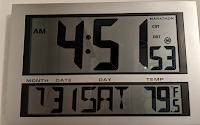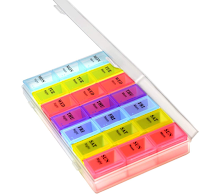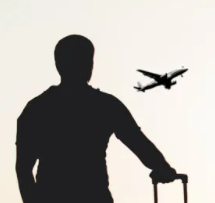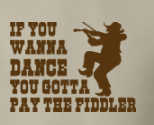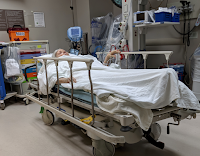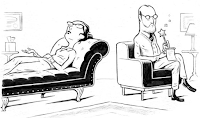Psychotherapy, not physical therapy which is what I am currently experiencing. almost thirty years ago I underwent psychotherapy for a period of months. I say underwent because it was like a surgery, but so worth the pain. For anyone suffering emotionally, and I am sure many people are after the past eighteen months of pandemic, I highly recommend it. This was chapter eleven in my book.
***
The dentist chair conjures up feelings of horror,
pain and trauma. We each deal with this
inevitable terror in different ways. Some will opt for laughing gas, others for
Novocain, and a few will tough it out in the vain hope that they will be able
to tolerate the intolerable, in order to avoid the after effects.
Not so with therapy.
The experience is similar to having teeth
pulled with nothing to dull the pain.
There is no laughing gas, there is no Novocain, there is just pain.
The purpose is the same, remove decay, fill
in the holes created by that decay, straighten what has been growing crooked,
file rough edges and clean off the buildup of plaque that affects the general
health of the entire body.
Though there are many people who steadfastly avoid
visiting the dentist, and eventually suffer the irreversible consequences, more
people will look after their oral health than will care for their emotional
health. I cannot believe that there is any adult alive, who has not suffered
sufficient emotional bruising that they would not benefit from the amazing value
to be gained from psychotherapy. I
suggest that every human being could, not just benefit, but get great personal
value from therapy.
Of course, there are, as always, caveats. The most important is that you have got to be
ready to cooperate fully. You have to
'submit' - and that is the only word I can think of to describe the horribly,
humiliating, feeling that precedes the huge release that can be achieved. If this all sounds very overpowering and
exaggerated, then let me put it in perspective by describing my own experience.
I had been married for almost half of my
life. I was 43 when my marriage finally
ended. I had expected to feel relief,
peace and the return of the technicolor optimism of youth. It didn't happen. I found myself in a monochrome world, alone
and lonely. After 20 years of being
tightly controlled in every area of my life, I was lost and rudderless. I slipped into a depression that threatened
to take over my life, and that of my three teenage children. Fate stepped in.
Sometimes we need a smack in the face, or a good
shaking, to make us see reality.
I got a
blow to the back of the neck.
My
guardian angel took the form of a large black Mercedes, which hurtled into the
back of my brother's car one wet evening.
My brother and his family had met me from the train station on my return
from a business trip.
Instead of
spending the evening at home with my children, I spent it in the Emergency
Room, flat on my back on a stretcher, in a tiny curtained cubicle.
I was left there alone for what seemed like
hours.
I couldn't even make a phone call
to let my children know where I was.
I
felt isolated and forgotten. I had time to think and I realized that if I
didn't do something about it, I would feel that way for the rest of my life.
Luckily, the injury was not too serious (and my
brother and his family were also uninjured).
I suffered severe whiplash, but I was released from the ER later that
night and was finally able to call my sons who came rushing to my rescue and
brought me home. With the encouragement
of a close friend, I decided it was time to take control of myself and get
help.
My sister's husband was a therapist, so I asked
her to recommend someone who might suit my needs. She gave me the name of a woman who she felt
would be ideal. It took me a few weeks
to get the courage to actually make an appointment. Nine o'clock in the morning, I was in the
waiting room, the only thing that differentiated it from a dental appointment
was the lack of that chemical scent and the absence of the background sound of
the drill. The fear was every bit as
strong.
I was called into the therapist's room. There was the inevitable couch, with a winged
armchair to one side. It was as scary a sight as that hydraulic chair with the
angled lamp and dangling drill hanging above it. My stomach was a tight knot and the only
reason I was able to sit on the couch was because my knees gave way and I
couldn't remain standing. But lie down I
could not do. I could not make myself so
vulnerable, so exposed, and yes, look foolish.
So, I sat there waiting for some indication of
what was expected of me. After all, I
had no previous experience. I only knew
what I had seen in the movies, and that might not be the reality. I fully expected some sort of instruction
from the therapist, as to what she expected of me. I hoped for a soft, sympathetic voice to say
something like "please lie down on the couch and tell me all about your
childhood…" or something that would help to get me started. To be perfectly honest, I really had no idea
why I was there. I knew that I needed
help, but I didn't know why I needed it.
I assumed that was what the therapist would tell me.
My mother had instilled in me a strong belief that
both whining and boasting were equally abhorrent, and being an analytical and
introverted child I probably took these lessons to extremes. This was something I had to come to terms
with before therapy could commence. How
could I open up to a complete stranger about my life, without either whining or
boasting, or both?
The silence continued, and of course, the longer
it lasted the harder it became to break it.
The therapist's half smile, which, in my very stressed state, I
interpreted as a sneer, didn't help. I
think I probably sat there for 15 minutes until, in desperation, I jumped to my
feet and ran out the door.
It was 6 weeks before I regained enough courage to
try again. Once again, I asked my sister
to recommend someone. She came up with
another name, and I made another appointment.
This time I had a better idea of what to expect. I could expect nothing, no words of
encouragement, no help at all. I was
going to have to do this on my own.
Dick, turned out to be the most wonderful
man.
I will remember him forever, as the
savior of my sanity.
On our first
meeting, I did lie on the couch, I did not relax.
I was so tense I was almost hovering above
the couch.
But I didn't pause to draw
breath, but started talking.
On my way
to his rooms I had practiced what I was going to say.
I started by telling him of my previous
traumatic attempt at therapy.
To my
relief he didn't smile and he did respond.
However, that was all I could think of to say.
I met with Dick twice a week for the next
year. At first I would lie on the couch
and say almost nothing. Slowly I started opening up. I spent the days between meetings, trying to
think of ways to start the conversation.
I found that if I was able to start talking before any silence occurred,
I was usually able to keep going. Sometimes
I spent more than half of the 40 minutes in silence, cursing myself for the
waste of money and time, but nothing came into my mind that I could put in
words.
One day, after about 3 months. I didn't lie down.
I told Dick that I felt foolish lying on my back and that I believed I would be
able to talk more freely if I were sitting upright. Dick went along with me,
though he was not totally in agreement. In fact, I am sure he broke a lot of
the normal 'rules'. He did respond, he did ask questions, and though he never
made judgments, he frequently expressed sympathy.
I talked my way through my childhood, the savage
beatings I and my siblings experienced; the fact that I felt unlovable, that I
believed neither of my parents loved, or even wanted me. That I believed my sisters to be so much
better than me; I talked about my marriage, and sometimes I just talked about
problems I was having at work that day.
It was a long time before I understood that it didn't matter what I
talked about, the important thing was to speak about what was on my mind. Because I was in need of help, if I talked,
my very skillful therapist would listen and hear things that I was not
necessarily saying. With minimum
influence, and maximum effect, he would make suggestions, which would set my
mind in a direction, which frequently surprised me, and often with traumatic,
but rewarding results.
The most extraordinary thing about therapy, is the
way in which each session continues to work away inside, for two or three
days. It reminds me of the method of
slow cooking. Using an iron pot, long
after the heat is turned off, the food continues to cook. My sessions with Dick would turn the heat on,
and over the next day or two, memories of experiences and feelings continued to
bubble to the surface
Every few months, I had what Dick called a
breakthrough. I could usually feel it
approaching and, once or twice, tried to sidestep it without success. The strange thing about these breakthroughs
is that they often revolved around some event that I believed I had 'dealt
with'. Suddenly things would take on a whole new meaning and I would really
deal with the situation, and for the last time. So many times I spent much of
the session crying so hard I couldn't talk. And, so many times, I wanted to
give up.
Dick walked with me, back to my early childhood,
through my marriage and through my divorce.
He was there when my father died and he supported me through the
victimization I was experiencing at work.
I did eventually say goodbye to Dick, not because I felt I no longer
needed therapy, but because I was heading to a new life in America, and he
supported me in that decision too. In
fact, some months before I left, I told him that I could no longer afford to
see him twice a week and asked to reduce my sessions to once a week. He felt
very strongly that the benefit lost would be far greater than 50% cost saved,
and he urged me to keep up the twice-weekly sessions saying that he would take
no payment, that I could pay him back when I got settled in America.
Six months after I arrived in the U.S., I wrote to
Dick telling him of my adventures thus far and enclosed a check to repay him
for those extra sessions. He responded
to my letter at length with compliments I never expected, his letter is one of
my most cherished possessions. A couple
of years later I was returning to Dublin on vacation with plans to visit Dick
when I heard of his death the previous month from cancer.
I am quite certain that I would not now be married
to a most wonderful man, if I had not put myself through the pain of
psychotherapy, just as surely as I know I can now smile without embarrassment,
because I put myself through the pain of dental surgery.
***
My therapist, Dick that was his real name, was an American; a New Englander from Vermont. He was also the first person in Ireland to be granted a divorce. As soon as divorce was finally legalize in Ireland. Wikipedia reports his divorce was granted so that he could marry his new partner:
"... the first divorce was granted on 17 January 1997, based solely on the constitutional amendment, to a dying man who wanted urgently to marry his new partner."
In fact they had been living together for years. His partner was the first therapist I visited, the woman I could not speak to.
If you are interested, here is an article from the New York Times: Looking for Evidence that Therapy Works


